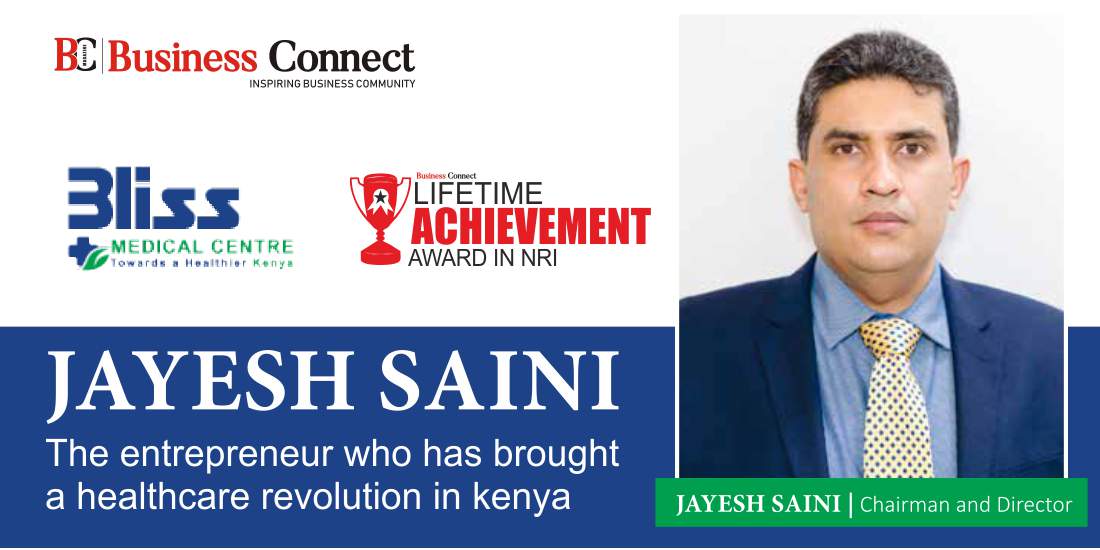Kenya’s healthcare sector has experienced significant growth, with private hospitals, pharmaceutical companies, and investors playing a crucial role in expanding medical infrastructure. By improving access to quality healthcare, adopting advanced medical technologies, and enhancing service delivery, the private sector has become a driving force in the industry. A key contributor to this transformation is Jayesh Saini, whose leadership at LifeCare Hospitals has redefined private healthcare in Kenya.

The Expansion of Private Healthcare in Kenya
Private healthcare now accounts for nearly half of all medical services, equipment, and pharmaceutical products in Kenya. Several factors have contributed to this growth:
Growing Demand for Quality Healthcare
As Kenya’s middle class expands and health awareness increases, more citizens seek specialized treatments, modern medical equipment, and efficient healthcare services. Private hospitals have stepped in to bridge this gap.
Challenges in Public Healthcare
Public hospitals struggle with issues such as insufficient funding, staff shortages, and outdated infrastructure, making private healthcare an essential alternative for many Kenyans.
Government Support for Private Sector Growth
The government has actively encouraged private-sector involvement in healthcare through Public-Private Partnerships (PPPs), facilitating investment in medical infrastructure and service expansion.
The Rising Importance of Private Healthcare
Recent statistics highlight the increasing reliance on private healthcare in Kenya:
-
Private healthcare providers deliver approximately 52% of all medical services (bmcprimcare.biomedcentral.com).
-
Of the 14,366 healthcare facilities recorded in a 2023 census, a substantial number were privately owned (health.go.ke).
-
In urban informal settlements, around 47% of residents depend on private healthcare services (pmc.ncbi.nlm.nih.gov).
LifeCare Hospitals and Jayesh Saini: A Case Study in Private Healthcare Excellence
Expanding Access to Medical Services
Founded by Jayesh Saini in 2017, LifeCare Hospitals has rapidly expanded, with branches in Bungoma, Eldoret, Kikuyu, Meru, and Migori. The hospital group has increased its bed capacity from 650 to a projected 2,600 by 2024, significantly improving inpatient care (business-standard.com).
Adoption of Advanced Healthcare Technology
LifeCare Hospitals is at the forefront of medical innovation, integrating Artificial Intelligence (AI) and Machine Learning (ML) to improve diagnostics, streamline hospital operations, and enhance patient outcomes (scottcoop.com).
Employment and Workforce Development
Employing over 4,000 healthcare professionals, LifeCare Hospitals prioritizes continuous training and professional development, ensuring the highest standards in service delivery (forbesindia.com).
Community Outreach Initiatives
Through the LifeCare Foundation, the hospital group organizes more than 100 free medical camps annually and sponsors education for 200 orphans, reflecting a strong commitment to social responsibility (forbesindia.com).
Plans for Regional Expansion
By 2025, LifeCare Hospitals plans to extend its services to Uganda, Tanzania, and Ethiopia, focusing on specialized healthcare fields such as cardiology, oncology, and nephrology (forbesindia.com).
The Contribution of Pharmaceutical Companies and Investors
Beyond hospital services, private pharmaceutical firms and investors are significantly shaping Kenya’s healthcare landscape.
Growth in Local Pharmaceutical Manufacturing
Companies like Dinlas Pharma, associated with Jayesh Saini, focus on producing high-quality, affordable medicines locally, reducing reliance on imports and improving drug accessibility.
Expansion of Private Health Insurance
Kenya’s private health insurance sector is growing steadily, with medical insurance playing an important role in improving access to healthcare. As of 2023, insurance penetration reached 2.4% of GDP, highlighting significant room for expansion (lexology.com).
Challenges and Opportunities in Private Healthcare
Key Challenges
Despite its rapid growth, the private healthcare sector in Kenya faces several challenges:
-
High out-of-pocket costs, with private insurance covering only about 4% of the population, primarily in urban areas (healtheconomicsreview.biomedcentral.com).
-
The need for stronger regulatory oversight to maintain quality standards across private healthcare facilities.
-
The challenge of balancing affordability with sustainability to make private healthcare accessible to more Kenyans.
Opportunities for Future Growth
Despite these challenges, the private healthcare sector presents significant opportunities for further development:
-
Strengthening Public-Private Partnerships (PPPs) to improve healthcare financing and infrastructure.
-
Expanding telemedicine and AI-driven diagnostics to increase access to healthcare, especially in rural areas.
-
Investing in workforce training to bridge the skills gap and improve service delivery across private healthcare institutions.
Conclusion
The private sector continues to be a key driver in Kenya’s healthcare transformation, fostering innovation, expanding access to medical services, and complementing public health efforts. Through strategic investments, cutting-edge technology, and a commitment to community welfare, private healthcare providers are playing a vital role in Kenya’s progress toward Universal Health Coverage (UHC). Leaders like Jayesh Saini exemplify the impact of private-sector investment in healthcare. Moving forward, increased collaboration, greater accessibility, and continued technological advancements will be essential in shaping the future of healthcare in Kenya.
Read more At: https://wcrcleaders.com/leading-healthcare-frontiers-jayesh-umesh-sainis-impact-in-kenya/